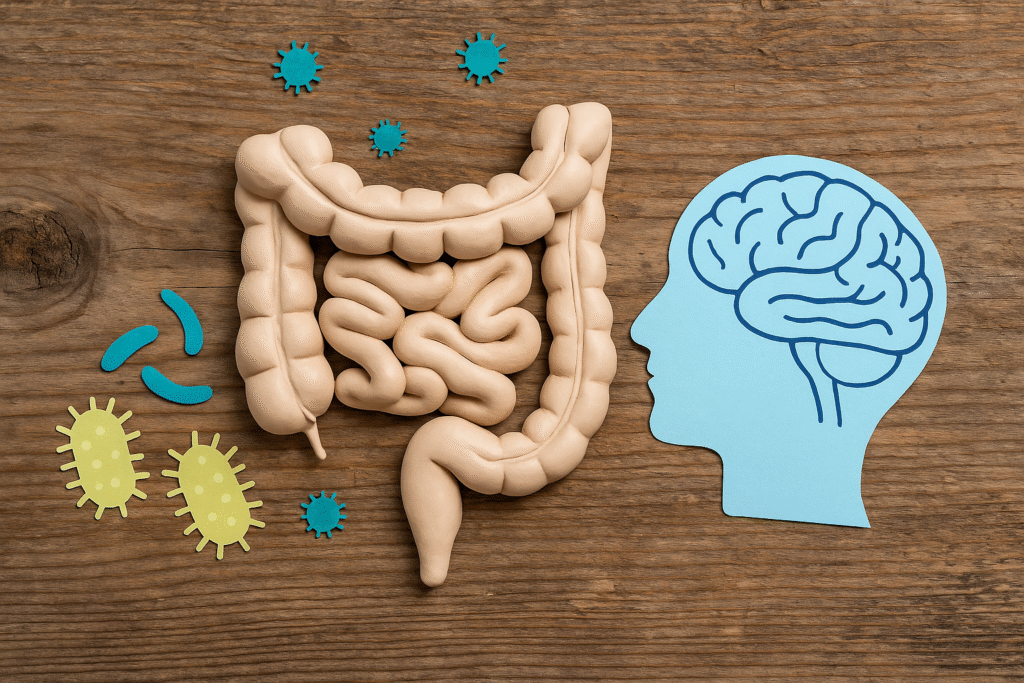How your gut communicates with your brain
What used to be ridiculed as esoteric is now scientifically proven: There is a close, bidirectional connection between the gut and the brain. The so-called Microbiome - i.e. the entirety of microorganisms in the gut - plays a key role. It not only influences digestion, but also mood, behaviour and mental health. Find out in this article how strongly the Microbiome your psyche and how you can specifically support it.
What is the microbiome?
The microbiome consists of trillions of bacteria, fungi and other microorganisms, most of which live in the large intestine. They are significantly involved in digestion, immune defence, hormone production and even in the formation of neurotransmitters - the messengers of our nervous system.
Gut-brain axis: The connection between gut & head
A highly active communication pathway runs between the gut and the brain - the so-called Gut-brain axis. It works via:
- Nerve connections (especially vagus nerve)
- Immune messengers
- Metabolic products of the microbiome
- Hormones & neurotransmitters
The communication is two-way: stress can damage the intestinal flora - and a disturbed flora can intensify psychological symptoms.
Microbiome psyche: How bacteria influence your mood
1. Serotonin production in the gut
Around 90 % of the "happiness hormone" serotonin is produced in the gut - mainly with the help of certain bacteria.
2. Inflammation & depression
An imbalance in the microbiome (dysbiosis) can promote silent inflammation, which has been shown to be associated with depression and anxiety disorders.
3. Stress resistance & cortisol regulation
A healthy microbiome has a stress-buffering effect and can regulate the release of stress hormones such as cortisol.
4. Neurotransmitters & behaviour
Certain gut bacteria influence the production of GABA, dopamine etc. - all of which are crucial for emotional stability.
Symptoms of a disturbed microbiome with a psychological connection
- Mood swings
- Irritability
- Sleep problems
- Exhaustion & brain fog
- Anxiety or depressive moods
These symptoms often occur in parallel with digestive problems such as flatulence, diarrhoea or constipation.
Strengthening the microbiome - for a stable psyche
✅ Nutrition:
- Prebiotics: Fibre from e.g. chicory, leek, oats
- Probiotics: Fermented foods such as sauerkraut, kimchi, yoghurt
- Avoid sugar, alcohol & highly processed foods
✅ Lifestyle:
- Reduce stress (e.g. through mindfulness or breathing exercises)
- Sufficient sleep
- Exercise in the fresh air
Conclusion: Microbiome and psyche - an underestimated duo
A stable microbiome is much more than just a digestive partner. It influences our mood, our behaviour and even our stress levels. Those who Targeted care of intestinal floracan therefore also actively Support mental health. The silent influence of the gut is anything but incidental - it is central to a balanced life.
